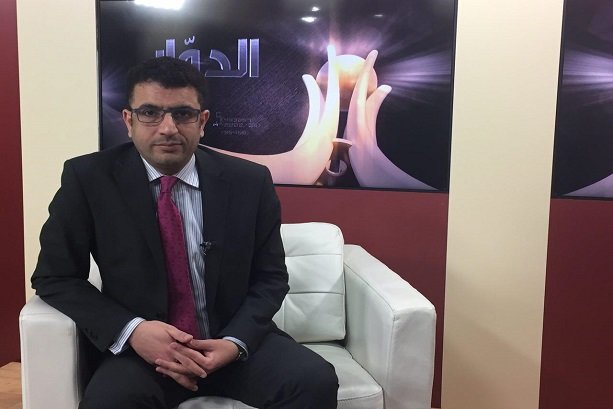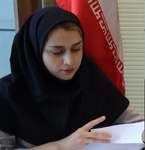Ayatollah Sheikh Isa Ahmed Qassim is Bahrain's leading Shia cleric and a politician. He is the spiritual leader of Al Wefaq, Bahrain's biggest opposition society. He was the leader and one of the founders of Islamic Enlightenment institution, as well.
Bahraini officials stripped Sheikh Qassim, the spiritual leader of the country’s dissolved opposition group al-Wefaq National Islamic Society, of his citizenship on June 20, 2016. They also dissolved the Islamic Enlightenment Institution and the opposition al-Risala Islamic Association.
The Manama regime has pressed charges of “illegal fund collections, money laundering and helping terrorism” against Sheikh Qassim, who has strongly denied them.
The regime’s measures provoked public protesters to hold demonstrations on an almost daily basis ever since a popular uprising began in the kingdom in mid-February 2011, since when scores of people have lost their lives and hundreds of others sustained injuries or got arrested.
Manama has gone to great lengths to clamp down on any sign of dissent. On March 14, 2011, troops from Saudi Arabia and the United Arab Emirates were deployed to assist Bahrain in its crackdown.
Head of the Bahrain Centre for Studies in London (BCSL) Abbas Busafwan, in an interview with Mehr News correspondent, said Bahraini government sees justice as a serious threat and Shaikh Qassim as a symbol for people, a symbol of their freedom. "Crushing him means crushing public, so the regime refuse to harm him," Abbas Busafwan told Mehr News, adding Saudi aggression against Yemen and the war against the Shia majority in Bahrain comes within the context of the aggression against Iran. It is totally due to Saudi Arabia’s arrogance and brutality, he added.
Al Khalifa regime names Sheikh Issa Qassim its main enemy, who is at the head of the Bahraini people’s peaceful rallies; they describe Sheikh Qassim as spiritual inspiration for the people of Bahrain and say he is a potential threat to their ruling in Bahrain. How do you evaluate the stability of Bahraini people in supporting Sheikh Issa Qassim and the outcome of their rallies and protests in releasing their leader?
The government's fault is that justice is a serious threat, and equality is an enemy of the ruling authority, and therefore anyone who supports these demands is an enemy of the ruling Khalifeh family.
I believe that the official view is true, which is Ayatollah Shaikh Issa Qassim's supports for justice, fairness and equality in Bahrain, for all citizens, Sunnis and Shias.
Qassim's views are based on a strong religious and national conviction that shows stability in Bahrain through the representation of people in constitutional institutions, so that their decisions reflect the hopes and aspirations of the people.
People, in forefront of them Shaikh Qassim, are looking for peace in Bahrain, but the government imposed the war and siege on them, and in this regard, there is no room but to reject the abuse of Qassim, not only he is a great person, but also because he pays the price of his positions in support of virtue. So, it is a symbol for people, a symbol of their freedom, crushing him means crushing them, so they refuse to harm him.
What does Al Khalifah regime seek by letting the deployment of Saudi military reinforcements to Bahrain? Does it indicate the regime’s readiness to suppress likely protests to sheikh’s court ruling which is likely to be deportation to a country where holds same political stance with Bahrain? And where would Bahrain choose to exile Sheikh Qassim?
Historical experiences in Bahrain indicate that the government deported the leaders of the national movement in the 1950s, who led unprecedented action in the region, demanding a constitutional monarchy, to the island of St. Helena.
Past experiences also indicate that the ruling authorities have already arrested senior leaders, such as Sheikh Abdul-Amir al-Jamri, in the 1990s.
Currently, the story seems more complicated. Has never imposed a one-year siege on an entire region and reluctance to arrest a national leader.
It is true that experiences also indicate that dialogue has already produced compromises, but these are almost an exception, and the ruling power is totally dependent on direct and indirect violence.
The national divide has never been so sharp like today. Most of the Bahraini equation has never been part of a wider regional game as it is now.
There have never been Saudi forces in Bahrain that is so large, so armed and prepared to engage on the ground against citizens.
All the possibilities are possible, and this drives the authorities to be cautious, but the American situation that supports tyranny and war may encourage the government to devote mistakes.
Given that Al Saud holds the greatest impact on al Khalifa regime’s decision process, do you think Riyadh’s Sheikh Nimr’s scenario would be repeated against Qassim, as well? And if yes, what would be the consequences in the region?
The Authority bears full responsibility for any damage inflicted upon the Shaikh. Protecting Qassim is now a government task. The reluctance to break into the fence is due to the possibility that Qassim will be subjected to ill-treatment.
Of course, it can be said without hesitation that an execution like that of Sheikh Al-Nimr is totally ruled out in Bahrain, I mean that a sentence from the judiciary to execute against Qassim, then executed, this is unlikely. However, the execution may take place in another way, such as being poisoned or killed in mysterious circumstances, or even by storming the Duraz area. The authorities have already tried it.
Never trust the intentions of authority, and exclude any choice after all these bitter experiences, excluding any option is not of a good measure and it lacks wisdom.
If you ask me what awaits Bahrain in Sheikh Qassim if he is physically harmed, I tell you that the worst is waiting.
Do you think Saudi Arabia’s attempts to induce that Iran seeks provocative actions and non-normative intervention in Bahrain is part of the country’s Iranophobia project?
Saudi Arabia considers Iran an enemy to achieve its goals which the Saudi government sees as important.
First, it brings it closer to the West, which sees Iran as an independent and replicable model and should be destroyed, a Saudi goal as well.
Second, the policy of Saudi Arabia’s anti-Tehran senses moves its internal problems abroad and distracts its people from its most important issues and creates an imaginary enemy.
Third, Saudi rapprochement with “Israel” needs an excuse, and its crazy talk about replacing Israel's enmity with Iran mixes the cards.
European and Asian experiences suggest cooperation is the way to resolve disputes, do not pour oil on fire as the Saudis do.
It is strange that the aggression against Yemen and the war against the Shia majority in Bahrain comes within the context of the aggression against Iran. It is totally due to Saudi Arabia’s arrogance and brutality.
British Prime Minister Theresa May in his latest visit to attend a meeting of the Persian Gulf Cooperation Council, officially supported al Khalifa regime. What do you think is the main reason that al Khalifa has extended hands towards Britain for help in the time being? Does al Khalifa expect any effective role from UK to suppress public protests and Sheikh Qassim?
The Americans abandoned Hosni Mubarak and Saddam Hussein before, and we don't know that the UK gave up any despot in the Middle East. It is true that the American policy is to maintain the status quo, but the British conviction in this is fully established, and this conviction is not a tactic in times of crisis, as is the American vision sometimes.
The United Kingdom that has established the rules of the game in Persian Gulf sheikhdoms. Its role is believed to remain central, and this does not change that it is part of the broader American strategy.
Although I think the British military presence in Bahrain is symbolic. But it expresses the firm protection of Al-Khalifa system, so Britain says it will maintain the rules of the game in Bahrain as far as it can, which is the monopoly of Al-Khalifa family of power and wealth.
What is the main reason for the postponement of Sheikh Qassim’s court trial? Does the government fear of Bahraini people’s armed resistance?
Currently, the regime is waging a comprehensive campaign against the opposition sectors, and the Shia majority, violations and torture is the only apparent part, while the economic and service restrictions on people are large, while policies of discrimination affect young children, women and adults.
Whatever the authority's actions against Ayatollah Qassim, it will not bring stability to the country. The only safest option for Bahrain is national consensus. The government takes the small island into a dead end, a country that is miserable, and the uprisings are renewed by the size of grievances. The current horizon is terrifying, and hands on hearts because of the dark future.
It is striking that, despite all this unhealthy situation in Bahrain, people are looking forward to tomorrow, and that history tells us that Pharaoh's rule does not last.
What would be the effect of positions taken by international community and UN Secretary-General António Guterres towards the condemnation of human rights violations in Bahrain? Does any movement has been done in action? If not, why?
I do not think that the people of Bahrain depend on the international community. Communication with international institutions remains central and practised by activists and political rights, but this implies an understanding that the international system supports the government in Bahrain.
The opposition activity has been able to embarrass the West and UN and has shown it to be hypocritical and based on double standards: acceptable freedom in some states and authoritarianism acceptable in others.
Abbas Busafwan is a Bahraini journalist, broadcaster and author based in London. In Bahrain, he was the editor-in-chief of Aswaq newspaper, the deputy managing editor of al-Ayam newspaper, and head of local news at Al-Wasat newspaper. He currently heads the Bahrain Centre for Studies in London (BCSL). He is a regular guest on many televisions and writes articles in several of Arab newspapers.
Interview by: Lachin Rezaian

























Your Comment